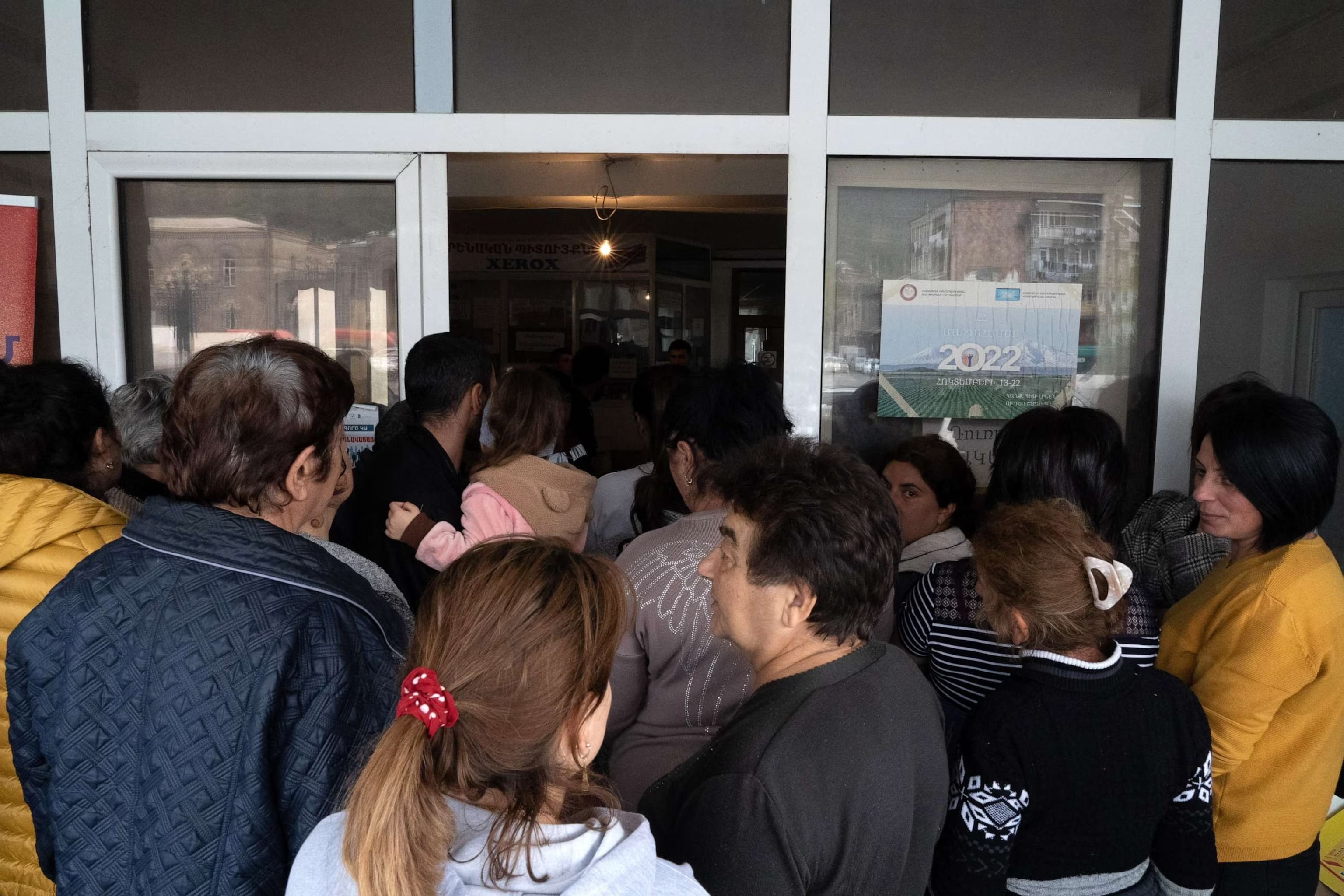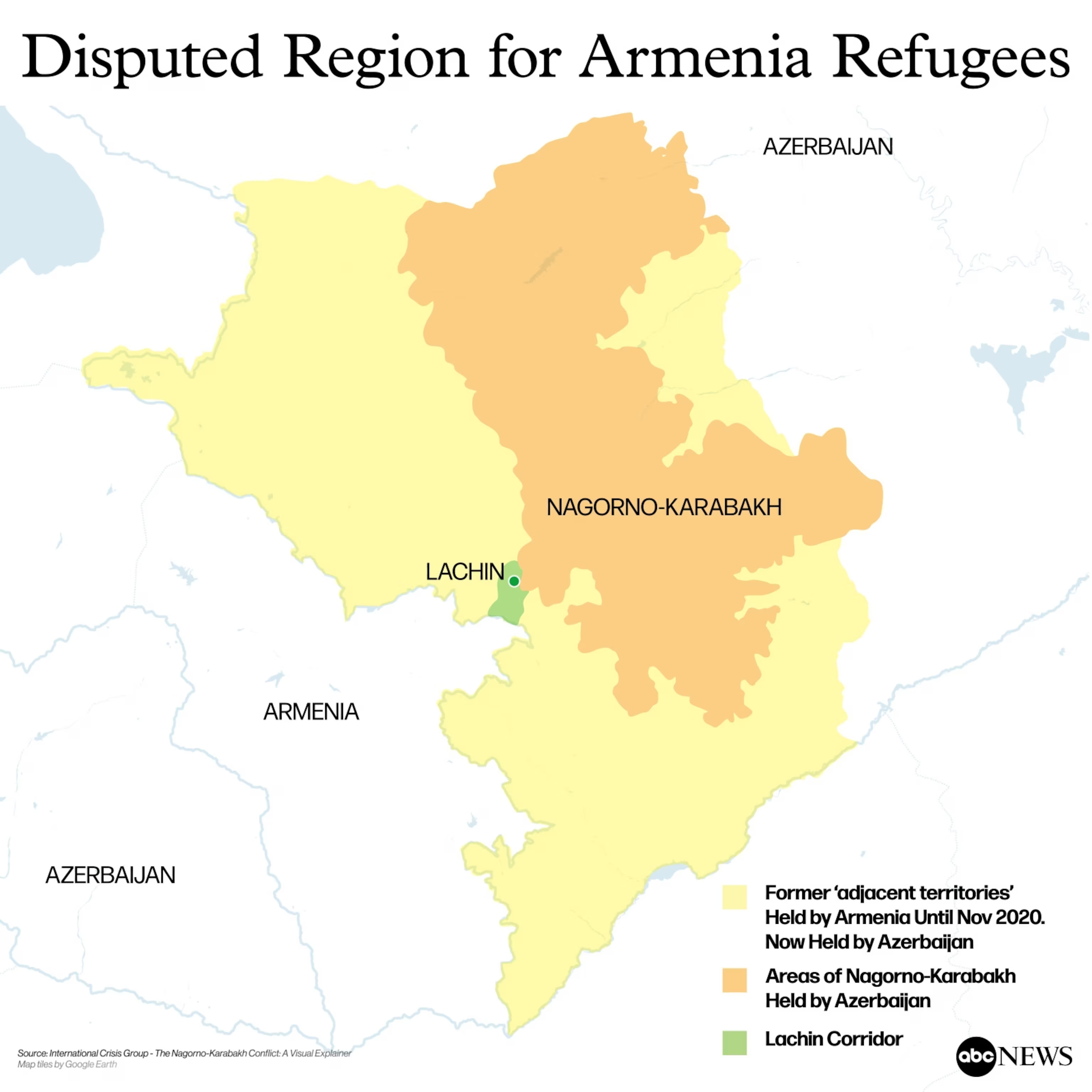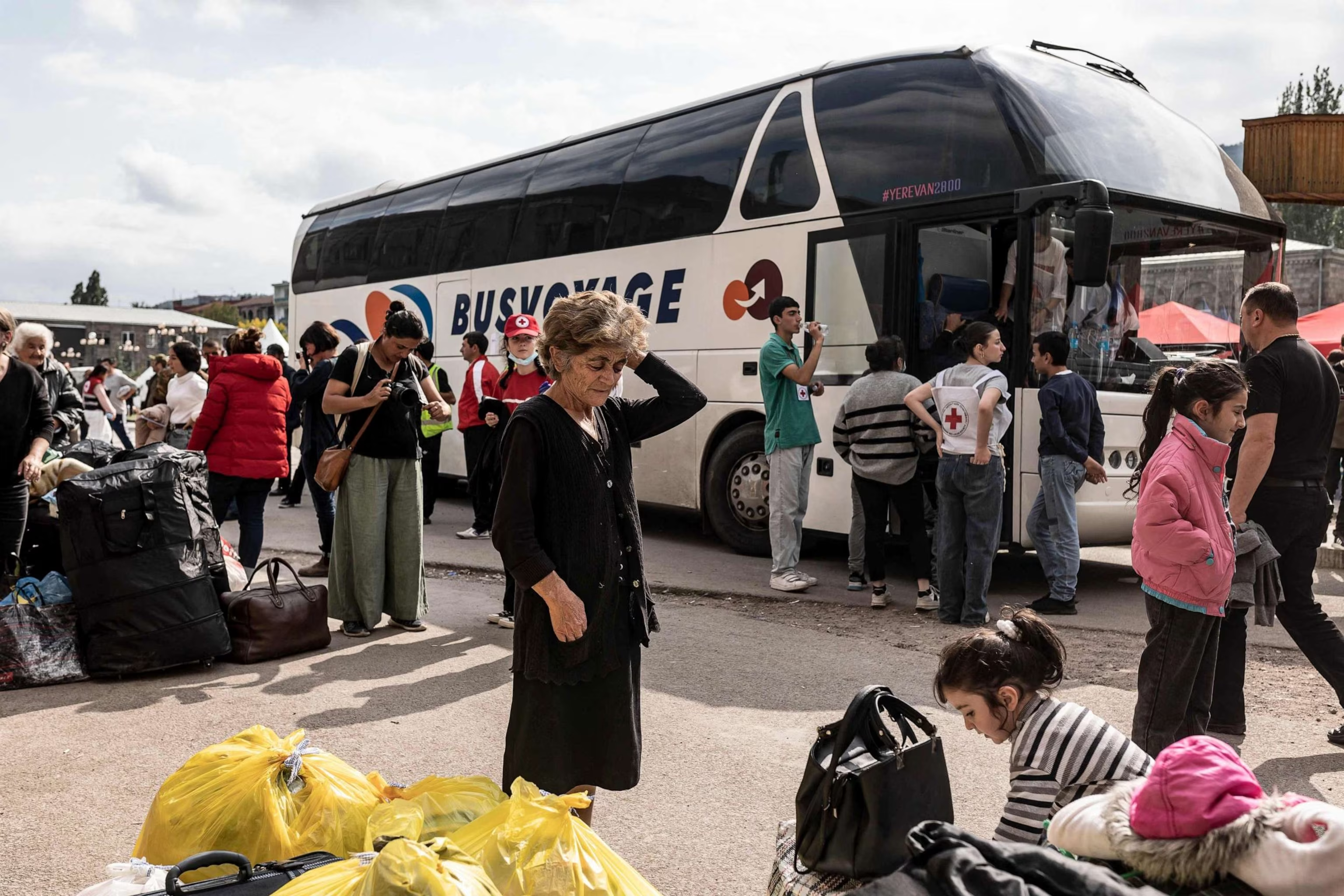Almost entire ethnic Armenian population has fled enclave
LONDON -- Virtually the entire ethnic Armenian population of the disputed enclave of Nagorno-Karabakh has fled, with the last buses carrying refugees having left on Monday, according to Russia's peacekeeping force deployed there.
More than 100,000 ethnic Armenians left the enclave in the last week, according to local officials, abandoning their homes after Azerbaijan, backed by Turkey, recaptured the region with a military offensive just over a week ago.
The exodus has emptied the enclave in what Armenia has condemned as "ethnic cleansing."
A television news crew from Al Jazeera showed the region's capital, known to Armenians as Stepanakert, completely deserted. The city, which had a population estimated at more than 50,000, appeared now to be a ghost town. The Al Jazeera crew showed the city's central square abandoned and strewn with empty chairs, used by people waiting for evacuation.
Before Azerbaijan's offensive, the enclave's population was estimated at 120,000. But a spokesperson for the Karabakh Armenians' unrecognized state's emergency services ministry on Sunday said only a tiny handful of people now remained in the enclave.

MORE: 10 dead after roof collapse at baptism ceremony in Mexico
Azerbaijan's authoritarian president, Ilham Aliyev, announced plans for Nagorno-Karabakh's reintegration into his country, signaling he intended to quickly restore strong control over it.
The region will now be overseen by special representative offices to Azerbaijan's president and security will be handled by Azerbaijan's interior ministry, Aliyev said. Azerbaijan's currency, the manat, would be reintroduced.

Aliyev said the equality of rights and freedoms, including security, would be guaranteed for all residents of Nagorno-Karabakh, and it would be permitted to use Armenian there. He also pledged that religious freedoms would be guaranteed, and cultural and religious monuments protected.
The pledges appeared to ignore the fact that the enclave's Armenian population had already fled. The Armenians fleeing have said they don't believe Azerbaijan's guarantees of their rights and fear they would face persecution.

MORE: Over 100,000 Armenians have now fled disputed enclave Nagorno-Karabakh
A United Nations mission also arrived in Nagorno-Karabakh Sunday to assess humanitarian needs, but it faced heavy criticism from local ethnic Armenian authorities who said they were far too late, given the civilian population was no longer there.
Nagorno-Karabakh has been at the center of a bloody conflict between Armenia and Azerbaijan for decades. Internationally recognized as part of Azerbaijan, it had been home to an ethnic Armenian population for centuries. As the Soviet Union collapsed in the late 1980s into the early 1990s, Nagorno-Karabakh's Armenians tried to break away from Azerbaijan, declaring independence.
A bloody war, in which Armenia aided the separatists, saw hundreds of thousands of Azerbaijani civilians also driven out of the region and ended with ethnic Armenians controlling most of Nagorno-Karabakh with their own unrecognized state.
But Azerbaijan reopened the conflict in 2020, starting a full-scale war that decisively defeated Armenia and ended with a truce deal brokered by Russia, which deployed peacekeepers to enforce it.
Two weeks ago, after blockading the enclave for nine months, Azerbaijan launched a new offensive, swiftly defeating the ethnic Armenian authorities in two days. The enclave's population started fleeing shortly afterward to Armenia.

There has been little international response to the crisis. Western countries, including the U.S. and France, have expressed concern and called for Azerbaijan to protect the rights of the Armenians. The Biden administration announced $11.5 million in humanitarian aid and dispatched the high-profile head of the U.S. Agency for International Development (USAID), Samantha Power, to the region last week.
Richard Giragosian, the director of the Regional Studies Center based in Yerevan, Armenia's capital, said the international response was "too little too late" and had set a "dangerous precedent."
"[This was] a seeming vindication of the use of force over diplomacy," Giragosian told ABC News by phone. "A military victory of authoritarian power over a struggling democracy."
But he said it had also shown the West has little influence over Azerbaijan. "What we see is Azerbaijan simply does not care about Western threats, pronouncements, and at the same time, the West has little leverage over Azerbaijan," Giragosian said.
Armenia's defense ministry on Monday also accused Azerbaijani forces of opening fire on a car carrying food to an Armenian border post near the village of Kut.
Azerbaijani forces are likely to move into Nagorno-Karabakh's now-empty capital, which it calls Khankhendi, in the next few days.
Russia's peacekeeping contingent said a joint Russian-Azerbaijani patrol came under sniper fire inside Nagorno-Karabakh on Monday, but that there were no casualties.
A meeting of representatives from Azerbaijan and the Karabakh Armenian leadership will take place for the first time in the capital in the "near future," the news agency of the enclave's unrecognized Armenian state reported Monday.
Disclaimer: The copyright of this article belongs to the original author. Reposting this article is solely for the purpose of information dissemination and does not constitute any investment advice. If there is any infringement, please contact us immediately. We will make corrections or deletions as necessary. Thank you.




